I would like to borrow from the brilliance of Steve Biko, one of the original heroes of black consciousness and South African anti-apartheid activist to advise all of us the oppressed people in Nigeria that lamentation over the broken walls of the country and incredible cluelessness of the ruling class and desperation of the scoundrels who are campaigning to succeed the outgoing mediocrities in power isn’t a strategy, after all. Yes, lamentation isn’t a strategy.
And so I would like to remind all the good people of Nigeria who would like to see a better Nigeria after May 29, 2023, that the same God Steve Biko was referring to isn’t in the habit of coming down from heaven to solve people’s election problems on earth. This means that we can read God’s mind through His words that He has lifted above His name. He has revealed to us that He is not deceived, whatever a man sows he shall reap. He has also revealed to us that only good trees can produce good fruits. Besides, He has warned us clearly that we cannot continue in sin so that grace may abound. He says He forbids that and so we can’t take His grace for granted. Here is the thing, all concerned Nigerians should note that the 2023 elections have consequences upon consequences. It is indeed a period of consequences. The elections will determine whether we should continue to with our failing country or we should continue with nation-building. The election management agency, INEC again assured the aristocracy of the Nigerian media at the weekend that we should expect electoral justice in 2023. This is a credible promise as the electoral umpire has demonstrated through recent staggered elections that INEC can indeed organise a remarkably free and fair election. All that is needful at the moment is how to organise ourselves to defeat the retrogressive forces that are desperate to continue our downward trend. We need to stop the desperate executive bandits and monsters who want to continue looting for themselves and their families. The 2023 elections are consequential. The young and the old should organise instead of agonising. The reasons are not too far to seek. There is a sense for instance in which we can claim to Nigeria as I was saying here: “Nigeria, We Fail Thee”! We are supposed to proclaim, “Nigeria We Hail Thee” as the old anthem suggests. But even in this season of sycophancy, there is nothing concrete to hail Nigeria about. There is no doubt that the angry young ones who will have access to the citizen journals on digital platforms today will repeat an earlier title by Toyin Dawodu (2014)“Nigeria, We Hate Thee”. October 1, 2022, which is staring us in the face, should be a day to celebrate our great country really. But it will soon turn out also as a day of reflections on the 62 years that the locusts have greedily eaten. It is also a day that is suitable for the locusts to know that because they have eaten our tomorrow for their today, we should tell them that we are now aware. The 2023 elections will be a veritable opportunity to demonstrate that the people can change and shape their destinies.
Besides, we need to counsel the young ones to organise instead of agonising about the locusts. Just the way they organised the very significant #EndSARS 2020. We should trumpet it to them again that lamentation in the social media is also not a strategy. They need to migrate from that sweet nothing called rhetoric to action spots where we should embrace that weapon called execution – the discipline of getting things done. And so, it is time to save up to buy more ‘insecticides of mass destruction to deal with the rampaging locusts that always eat up our national assets, our virtues. Finally, it is time to share some pieces of information to the young ones about the power of skills acquisition and research at such a time like this. And the purpose-driven research is about one thing; the 2023 general elections. You may be wondering why I am raising enthusiasm in the 2023 elections again. I have been reflecting on a 2009 statement by the U.S first African American President, Barack Obama that, “elections have consequences”.
On January 23, 2009, President Obama said, “Elections have consequences, and at the end of the day, I won”. That was when President Obama was snapping at the Republicans after his election in 2009 when he didn’t have to worry about compromise when his Democratic Party had majority control of both the House and the Senate. So, the same Obama proceeded to introduce radical measures including the ObamaCare, among others. And in 2014, the voters noticed and voted in record numbers against Democrats in Congress. It was then recorded of the Hurricane Obama, “You said it, Mr President: Elections have consequences. Because you lost in 2014, Republicans can now reject your lame-duck Supreme Court nomination. And should…” It came to pass then that when the Democrats were in the minority, and the Republican were trying to stall the confirmation of Neil Gorsuch to the Supreme Court, even as President Obama told the Senate Republicans to go nuclear if necessary, they reminded the President about the power in his words that, “elections have consequences”. Again, finally, in 2016, the words came back to Obama as an outgoing President when he was campaigning to get Hillary Clinton to succeed him as a Democratic Party candidate.
Mrs Clinton didn’t eventually win and the world again saw the power in those words, “elections have consequences”. Hurricane Donald Trump came, saw and redefined ‘the West’ and Tweeted on end ‘America’s awesome exceptionalism’. These have been the consequences of elections even in America, their America as the legendary J.P Clark calls them in a book title.
Those words have had some impact on me in recent months as I reflect on how the Nigeria’s power elite, nurtured by the Federal Republic of the Nigerian Army (according to General Chris Ali) have failed Nigeria, the world’s most populous black nation. I feel the young ones who desire real change for development should take the slogan to all the nooks and crannies of this country that: “We have been naïve. We did not know what General IBB and his men knew in 1993 when they cancelled the people’s wishes expressed in the 1993 general and presidential elections. We fought him and ran away. He too ran away to Minna, the capital of Niger State on 26 August 1993. And democracy was scotched just as the self-styled Prince of the Niger killed the consequences (dividends) of our elections. Even after the sudden deaths of the symbol of democracy and the June 12 elections in 1993, Chief M.K.O Abiola and the usurper-in-chief of the people’s mandate, General Sani Abacha, the same military cabal still imposed one of their own, General Olusegun Obasanjo as President in 1999. We all felt the consequences of his election and re-election in 1999 and 2003-2007. As we dozed off in 2007, the artful soldiers again imposed a candidate they knew was not healthy on the nation. And while men were deep in their slumber, the sick candidate too resisted all moves to get him a strong running mate. We all saw the consequences of the election of the unprepared one, President Goodluck Jonathan in 2011-2015 after completing the truncated tenure of his principal from 2010 to 2011. Behold, the consequences of the 2011-2015 elections paved the way for the 2015 election upset we all celebrated: that indeed a man of integrity whose body language alone could literally improve electricity and indeed the economy had been elected. Haven’t we seen the consequences of the 2015 elections. The administration produced by the 2015 election has been battling with a two-point agenda namely, “fighting insecurity and corruption”. As it has been noted here several times, the president may have recorded some plaudits in a section of the media on the two-point agenda in recent weeks, but they cannot be recorded as quite significant, in this connection. Corruption seems to have technically knocked out the ‘New- Sheriff-in Town’ Malam Garba Shehu introduced to us in 2015.
Specifically, insecurity and corruption are still waxing stronger as headaches for all governments in the country. Are there any institutions of governance or social services that the nation can be proud of – from education, healthcare, power/energy sector, roads construction and maintenance to aviation? These are consequences of elections from just 1999- to 2022/23.
We have read enough about the patriotism of the founding fathers who built this nation and obtained independence for us. Today we should talk to those who have pulled down the house and failed Nigeria. Now, under the watch of today’s leaders, we do not write about Nigeria or the Federal and State Governments anymore. We now write about the presidency or president Obasanjo/Yar’Adua, Jonathan or Buhari or Governor this or that or governor this-or that administration. There is no Nigeria or federal government to attribute anything to. We give all the glory to mere men in power. President this or governor that has approved road repairs from one town to the other: no reference to the federal or state governments anymore in our media language.
As I once asked here, where indeed did the rains start beating us? On October 1, 1960, Sir Abubakar Tafawa Balewa,
Nigeria’s first Prime Minister who opened the first chapter in the history of Nigeria on Independence Day had noted among others in his address titled, I Dedicate Myself To The service of My Country: “…At this time when our constitutional development entered upon its final phase, the emphasis was largely upon self-government: We the elected representatives of the people of Nigeria, concentrated on proving that we were fully capable of managing our affairs both internally and as a nation, However, we were not to be allowed the selfish luxury of focusing our interest on our own homes…”
When shall we get leaders who will today dedicate themselves to the service of this country? In the country today, our leaders who failed to develop our roads and transportation infrastructure loot out treasuries to buy private jets to fly over the bad roads. Our leaders who failed the nation by refusing to equip public schools retired home to establish good private schools and universities that children of the real people cannot attend. Nigeria is poor, down and almost out but its rulers always have enough war chest to run for public offices at any time. They complain as candidates that Nigeria cannot make it unless the public oil company, the Nigerian National Petroleum Corporation (NNPC) is reorganised or even privatised. But when they get to the same office they accused of corrupting the operations of NNPC, they sabotage the reform of the same oil corporation. Where will the redemption song come when the legislature the organic law gives the power to oversee the public purse becomes the ‘legislooter’?
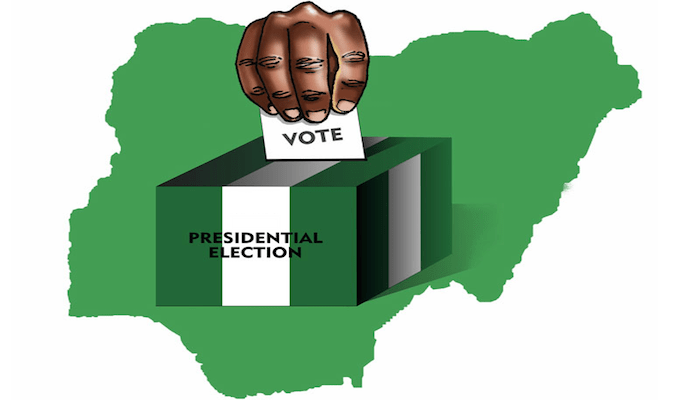
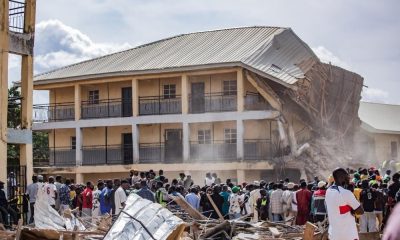
 Latest1 week ago
Latest1 week ago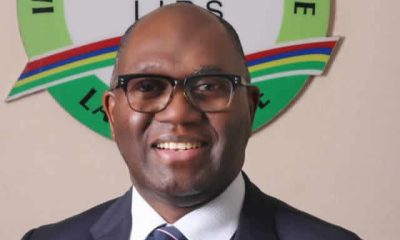
 Business1 week ago
Business1 week ago
 Latest1 week ago
Latest1 week ago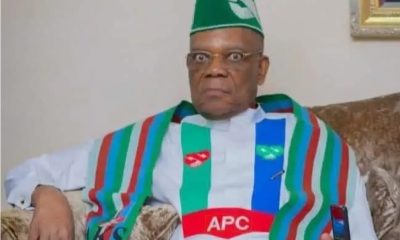
 Latest1 week ago
Latest1 week ago
 Business1 week ago
Business1 week ago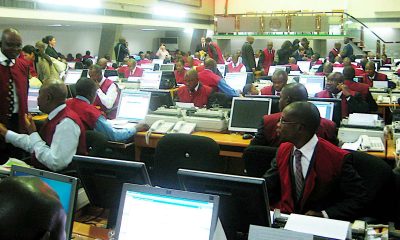
 Business1 week ago
Business1 week ago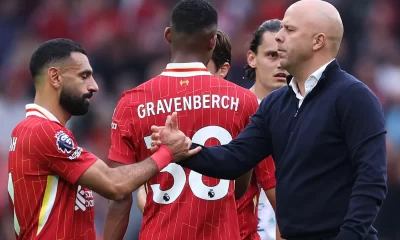
 Football1 week ago
Football1 week ago
 Business1 week ago
Business1 week ago
